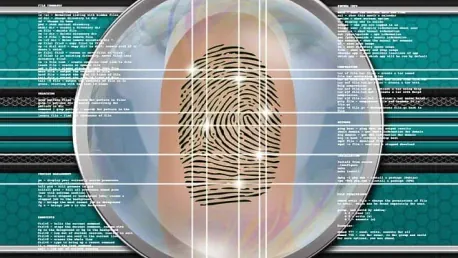The Goods and Services Tax Network (GSTN) has announced a new process for GST registration that introduces biometric-based Aadhaar authentication and document verification for applicants in Arunachal Pradesh. This new procedure aims to enhance transparency and streamline the GST registration process. To help taxpayers navigate these changes, the GSTN has issued an advisory dated December 31, 2024, which outlines the key steps and requirements involved. This move is expected to significantly impact the registration process, making it more secure and efficient. Below are the critical points and steps involved in the new GST registration process in Arunachal Pradesh.
Comprehensive Overview of the New GST Registration Process
The revised GST registration process involves several steps, starting with an amendment to Rule 8 of the Central Goods and Services Tax (CGST) Rules, 2017. This amendment allows applicants to be identified on the common portal through data analysis and risk parameters, facilitating biometric-based Aadhaar authentication and the capture of the applicant’s photograph. Additionally, the original documents submitted with the application are also verified. This biometric-based functionality has been developed by GSTN and was implemented in Arunachal Pradesh on December 28, 2024. The functionality not only encompasses biometric authentication but also entails document verification and an appointment booking system.
Upon submitting the application in Form GST REG-01, the applicant receives an email containing one of two possible links. The first link is for OTP-based Aadhaar authentication, allowing the applicant to proceed with the existing registration process. The second link facilitates the appointment booking process, directing applicants to visit a GST Suvidha Kendra (GSK) for biometric-based Aadhaar authentication and document verification. If the applicant is directed to book an appointment, they can choose a time slot at the designated GSK using the link provided in the email. This system aims to ensure that applicants undergo thorough verification before the issuance of a GST registration.
Specifics of the Biometric-Based Aadhaar Authentication
Once the appointment is booked and confirmed via email, applicants must prepare for their visit to the GSK. They are required to carry specific documents, including the appointment confirmation email, details of jurisdiction as specified in the intimation email, and original copies of their Aadhaar Card and PAN Card. Additionally, any original documents uploaded with the application must be brought along as per the instructions in the intimation email. At the GSK, the biometric authentication and document verification are conducted for all individuals as specified in the GST application Form REG-01. This dual verification process ensures not only the accuracy but also the authenticity of the applicant’s identity and submitted documents.
It’s essential to note that applicants must schedule their biometric verification appointment within the permissible period indicated in the intimation email. Failure to do so could result in delays or complications in the registration process. Once the biometric-based Aadhaar authentication and document verification are completed successfully, the Application Reference Number (ARN) is generated. This ARN is crucial for tracking the application status and ensuring compliance with the GST registration requirements. The operation days and hours of the GSKs adhere to the guidelines provided by the state administration, ensuring that applicants have ample opportunity to complete their registrations within the stipulated time frame.
Implications and Future Prospects
The Goods and Services Tax Network (GSTN) has introduced a new method for GST registration in Arunachal Pradesh, featuring biometric-based Aadhaar authentication and document verification. This innovative procedure aims to enhance transparency and make the GST registration process more streamlined and straightforward. To aid taxpayers in understanding these changes, the GSTN issued an advisory on December 31, 2024, detailing key steps and requirements. This new approach is anticipated to greatly impact the registration process, ensuring it becomes more secure and efficient. The advisory outlines critical points and steps to help applicants successfully navigate the updated GST registration protocol. As Arunachal Pradesh rolls out these changes, it’s important for applicants to be aware of the new procedures and prepare accordingly. The combination of biometric authentication and rigorous document verification is designed to prevent fraud and guarantee the integrity of the tax system. This move by the GSTN is an essential step towards modernizing tax administration in the region.









